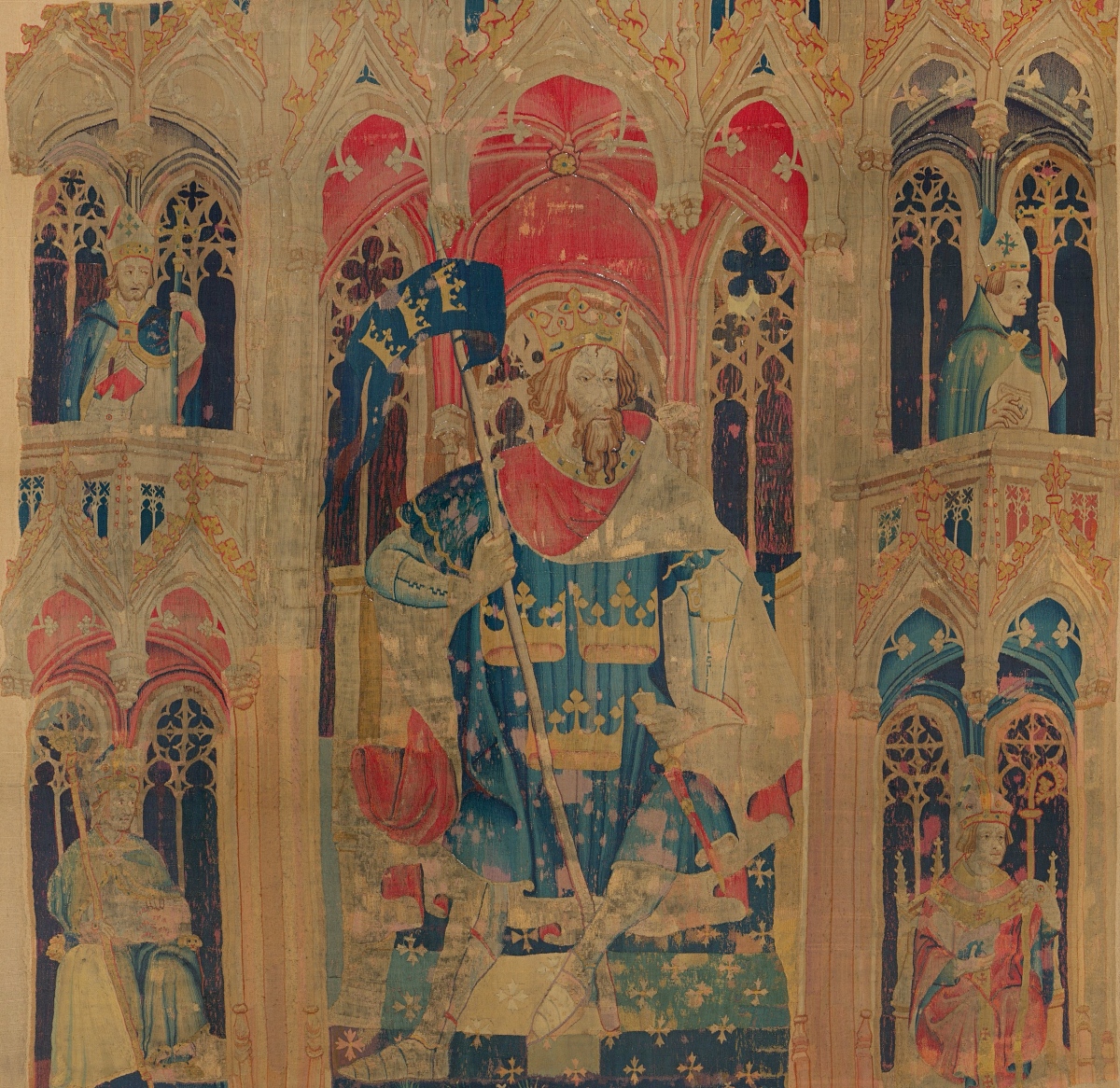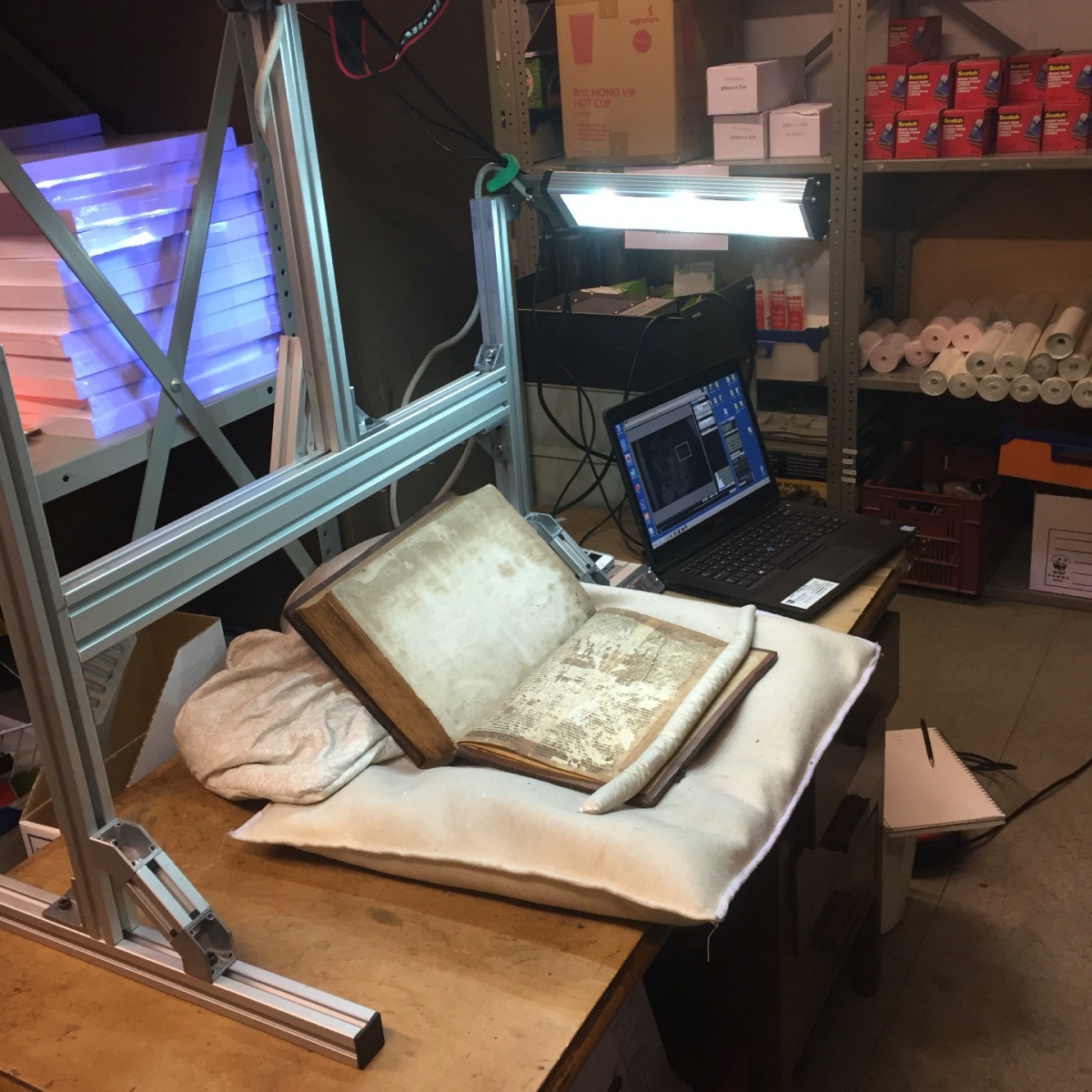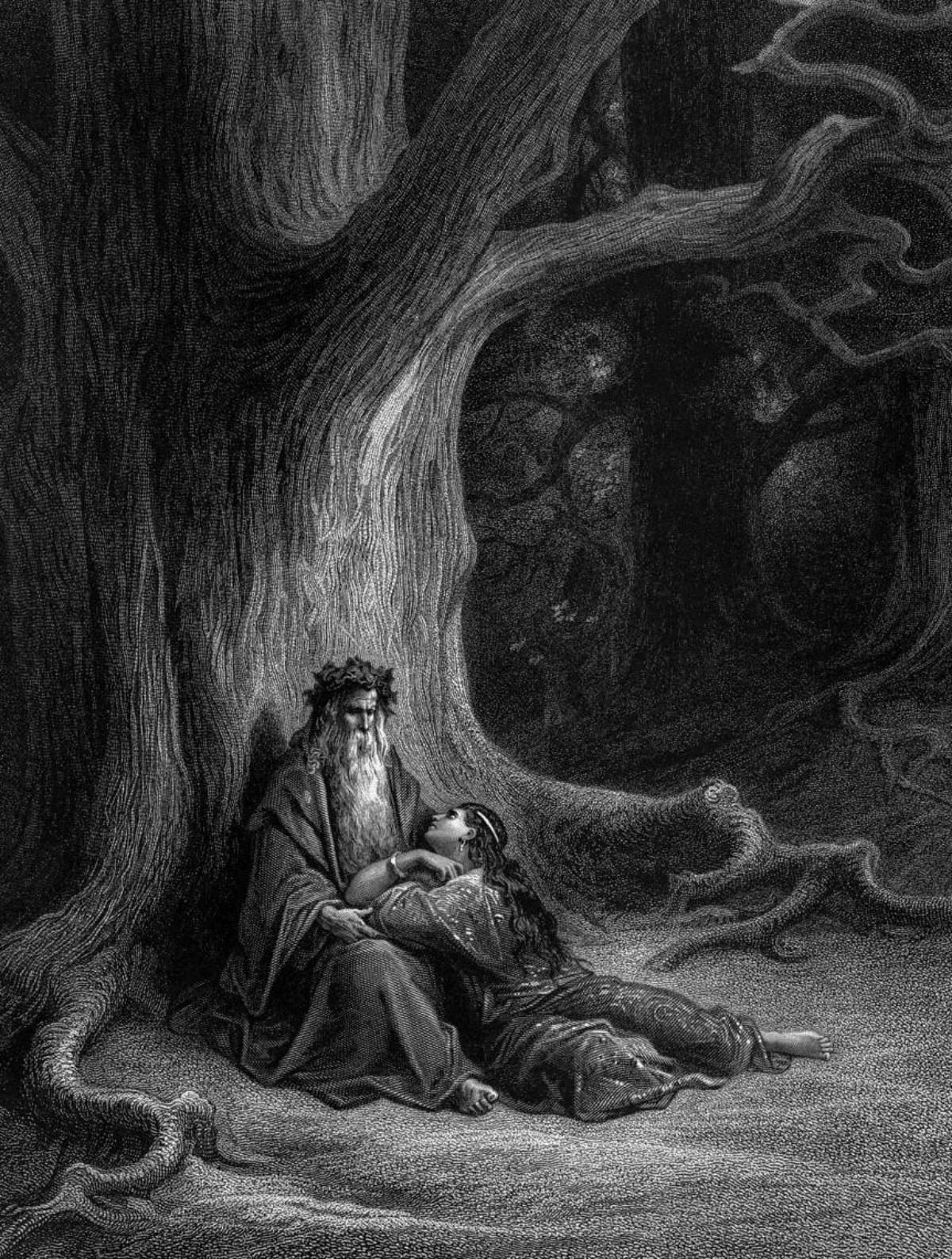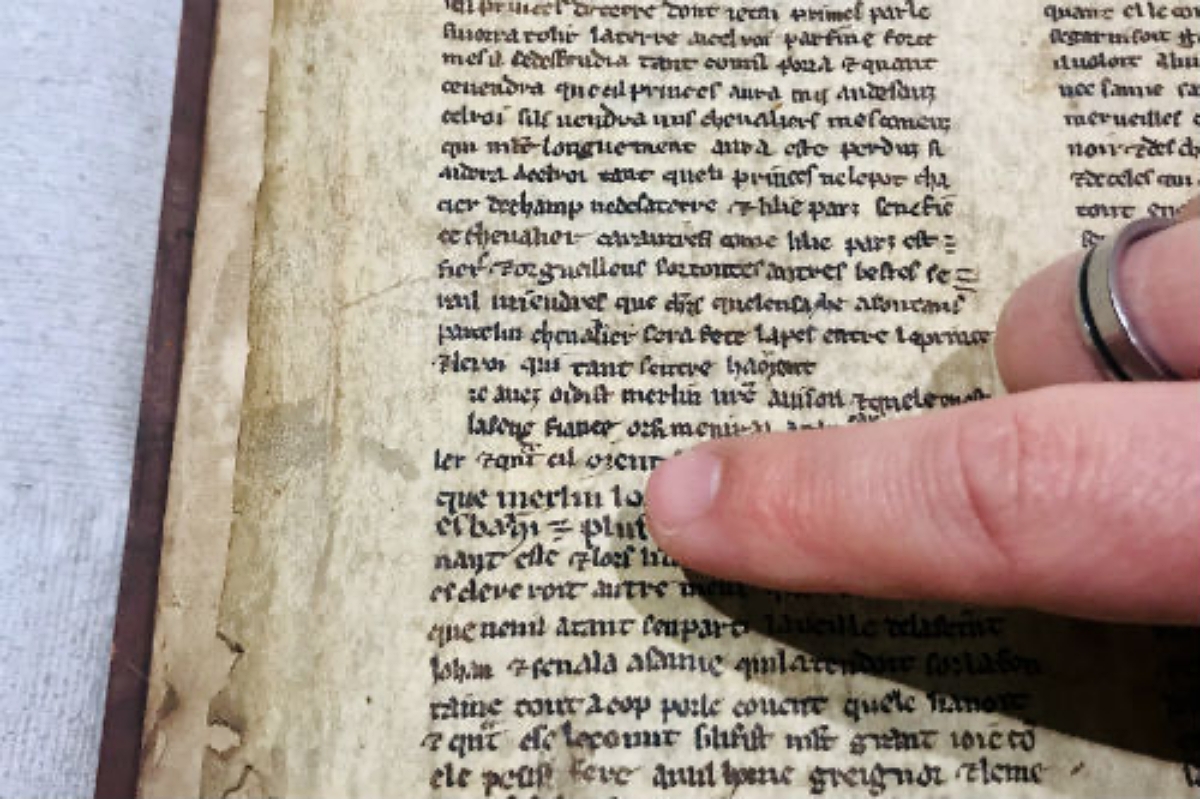Pages of 13th Century Arthurian Text Found Hidden in Other Old Books
This puts Merlin in a different light.
Rare pages from an early Arthurian text have been discovered in four books from the 16th century. These pages were ripped from their original binding and used to bind new books. This was not an uncommon practice back then as paper was incredibly expensive and rare. The volumes were discovered by chance in the Bristol Central Library’s rare books collection located in Bristol, England.

The parchment pages were found back in 2019, but have only recently been analyzed using spectroscopic analysis to determine more of what each page says. The method of using old pages to bind new books inherently damages the scrap pages, making reading the text difficult.
Researchers from the University of Bristol have dated the pages to between 1250 and 1275 using handwriting analysis. The earliest written King Arthur story dates to the 9th century and this tale has become the most well-known British legend of them all. The 7 pages were used in the binding of four volumes of French philosophy from the 16th century.

In some tellings Merlin is cast as a licentious character who lusts after one of his students, Viviane (AKA the Lady of the Lake). However, in these re-discovered pages she casts a spell that makes it impossible for anyone to even speak to her, let alone be intimate with her. This makes Merlin a more wholesome character who doesn’t even stand a chance with the Lady of the Lake.
Since the legend is so old and has so many variations the themes are divided into cycles. These seven lost pages fall into the Vulgate Cycle, one in which the love affair of Lancelot and Guinevere and the search for the Holy Grail come to the forefront of the plot lines.

The Vulgate Cycle is thought to have originated between 1220 and 1225, meaning the lost pages are from a relatively early variation on the legend. The most famous version of this cycle was created by Sir Thomas Malory in the 15th century, though it is unknown if the pages, now know as the Bristol Merlin, could have been one of his sources.
The Bristol Merlin is written in Old French and researchers have found that based on the dialect it was created in France. Old French was used during a period of Anglo-French rule specifically for romantic texts for tomes in both countries.
A note scribbled in the margins (“my god” in English) shows the text was at some point read an English speaker, most probably in England.

The pages have since been translated back to English for the purposes of studying the text in more detail. The translations, analysis, and photos of the rare pages are part of a new book called The Bristol Merlin: Revealing the Secrets of a Medieval Fragment, by Leah Tether, Benjamin Pohl, and Laura Campbell, published by ARC Humanities Press.
The Bristol Merlin is one of around 200 examples of the Vulgate Cycle Arthurian texts from the period.
SKM: below-content placeholderWhizzco for DOT

